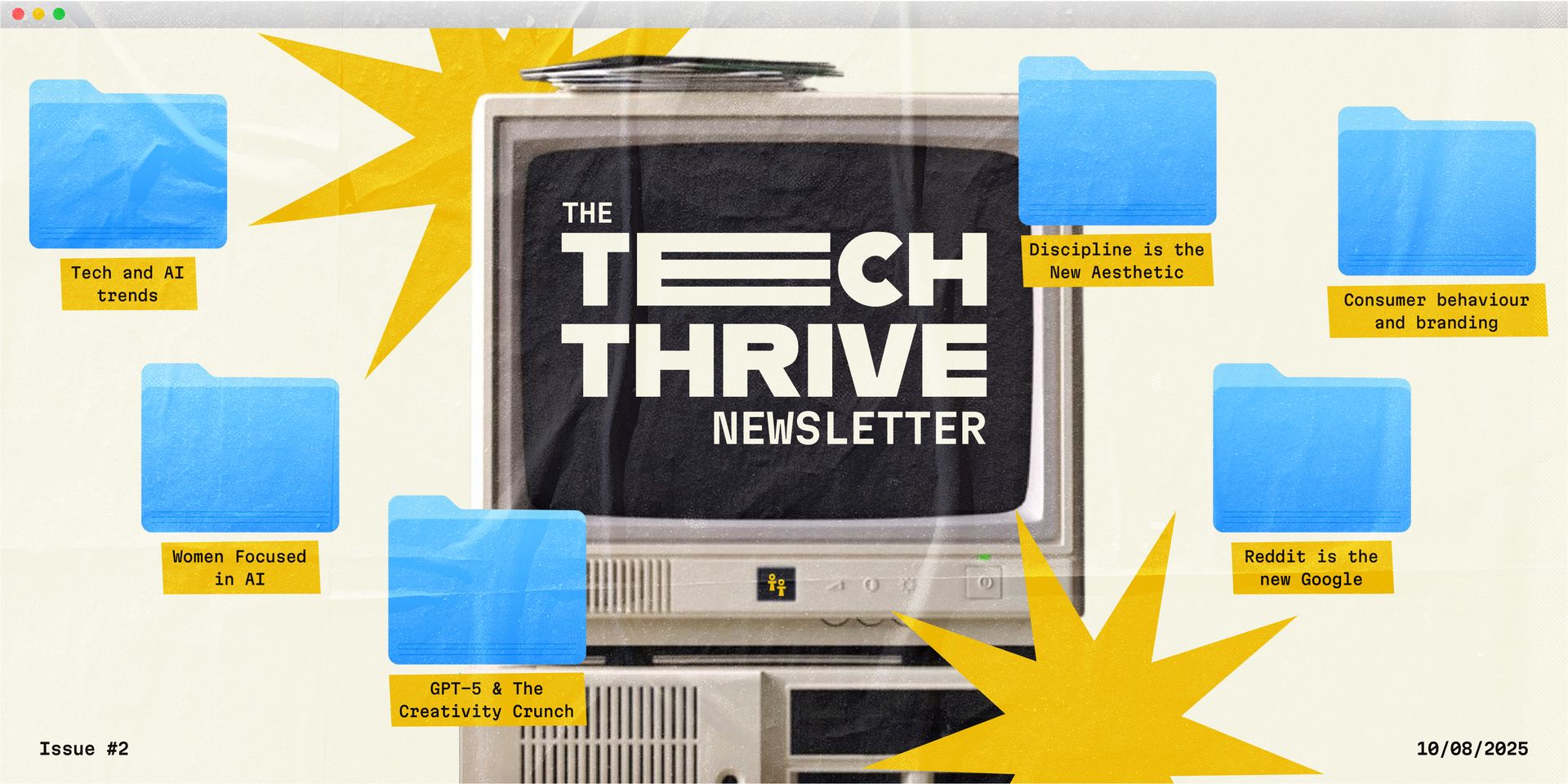
Hey! I’m so glad you’re here and giving a chance to read the second issue of the TechThrive newsletter.
For those of you who are new here, welcome to TechThrive: your Next-Gen venture studio and go-to platform for decoding the future of the economy. From AI trends to consumer behaviour shifts, we’re tracking what matters and who’s being overlooked.
This isn’t just another trends recap. We cut through the hype, and spotlight the signals shaping tomorrow’s markets before they hit your LinkedIn feed. Think of it as your cheat sheet to sound smarter in meetings and spot opportunities before the herd does.
AI’s HYPE, HOPE AND THE HEADACHES
Maybe the new VC trend is that investors will even fund a rock if it says ‘powered by AI’ but what's important is to look out for how the product market fit is affected as we enter the emerging AI adoption market. Companies must focus on addressing painful systemic challenges rather than just technological improvements. Success stories like Brisk in education demonstrate the importance of solving real problems that existing stakeholders face daily.
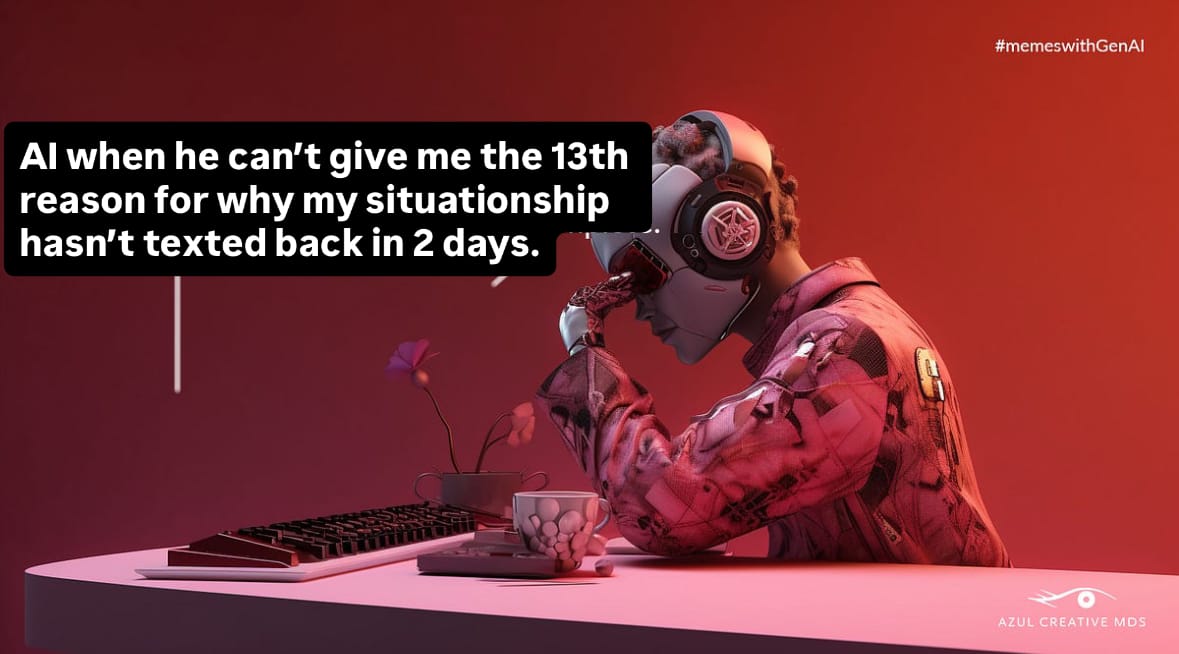
Lately, I’ve noticed a trend quietly taking hold: Gen-Z is leaning on AI for therapy. This is not because now tech is more reliable than humans, but because it provides them with something that traditional therapy doesn’t: instant gratification. Think about it. Why would you spiral in your thoughts till your next scheduled session, when a bot can instantly give you affirmations about your feelings at 2am? For a generation raised on dopamine loops, it makes sense. But here’s the catch, are we trading emotional confidentiality for convenience? In the rush to access mental health support at our fingertips, we might be overlooking a critical gap: AI tools aren’t bound by the same confidentiality laws as human therapists. There’s no legal framework yet to guarantee that what you share with a chatbot stays private. So while AI may feel like a safe space, the truth is, we’re venting to an algorithm with no clear boundaries and that’s a risk we need to talk about.

While Brad Pitt was reigning our big screens with his eye-catching performance in the new F1 movie, their pop culture moment was in fact a reminder of how much high-stakes storytelling F1 carries at its core. But today, with algorithms predicting outcomes laps in advance, strategy is starting to feel more like software than sport. The question is hard to ignore: is F1 becoming more clinical, optimised to the point of losing its unpredictability? In chasing perfection through AI, we may be watching the soul of the sport quietly shift gears.
As most of the tech Twitter argues on what’s better between Claude, GPT and Perplexity- Ulysses Ecosystem Engineering, the climate tech start-ups is quietly proving that 2025 is the year AI grows up and gets to work. Ulysses launched in early 2024 and has since earned nearly $1 million in revenue from both private companies and government organisations by solving one of the most critical yet overlooked climate challenges: ocean ecosystem restoration. Their autonomous underwater drones collect seeds from healthy meadows, replant them in damaged areas, and monitor growth at just a tenth of the traditional cost. What makes Ulysses a perfect study for AI in climate tech: they've solved the classic "demo magic" problem that plagues most AI startups by choosing a domain where measurable impact is built into the value proposition.
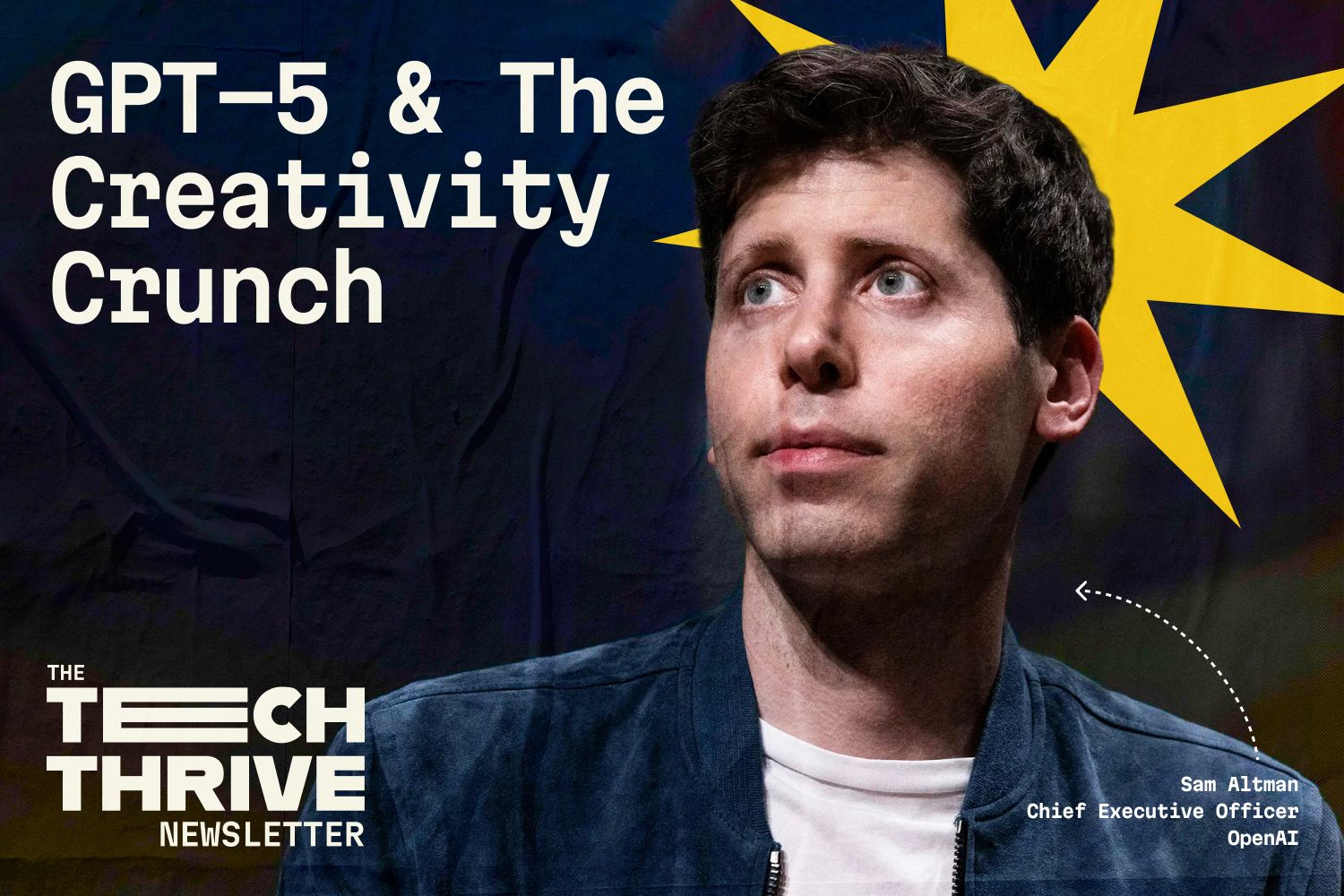
GPT-5 has been making headlines about being in the news for its fascinating updates, but while everyone talks about productivity gains, are we falling into the trap of idea homogenisation? When millions of users start ideating through the same AI, originality quietly takes a backseat. We’re entering an age where the same prompt yields eerily similar outputs because behind GPT’s intelligence is a model trained on what already exists. The result? Creative work that feels polished but painfully predictable. AI can never replace creativity, but if we’re not careful, it might just flatten everything around it.
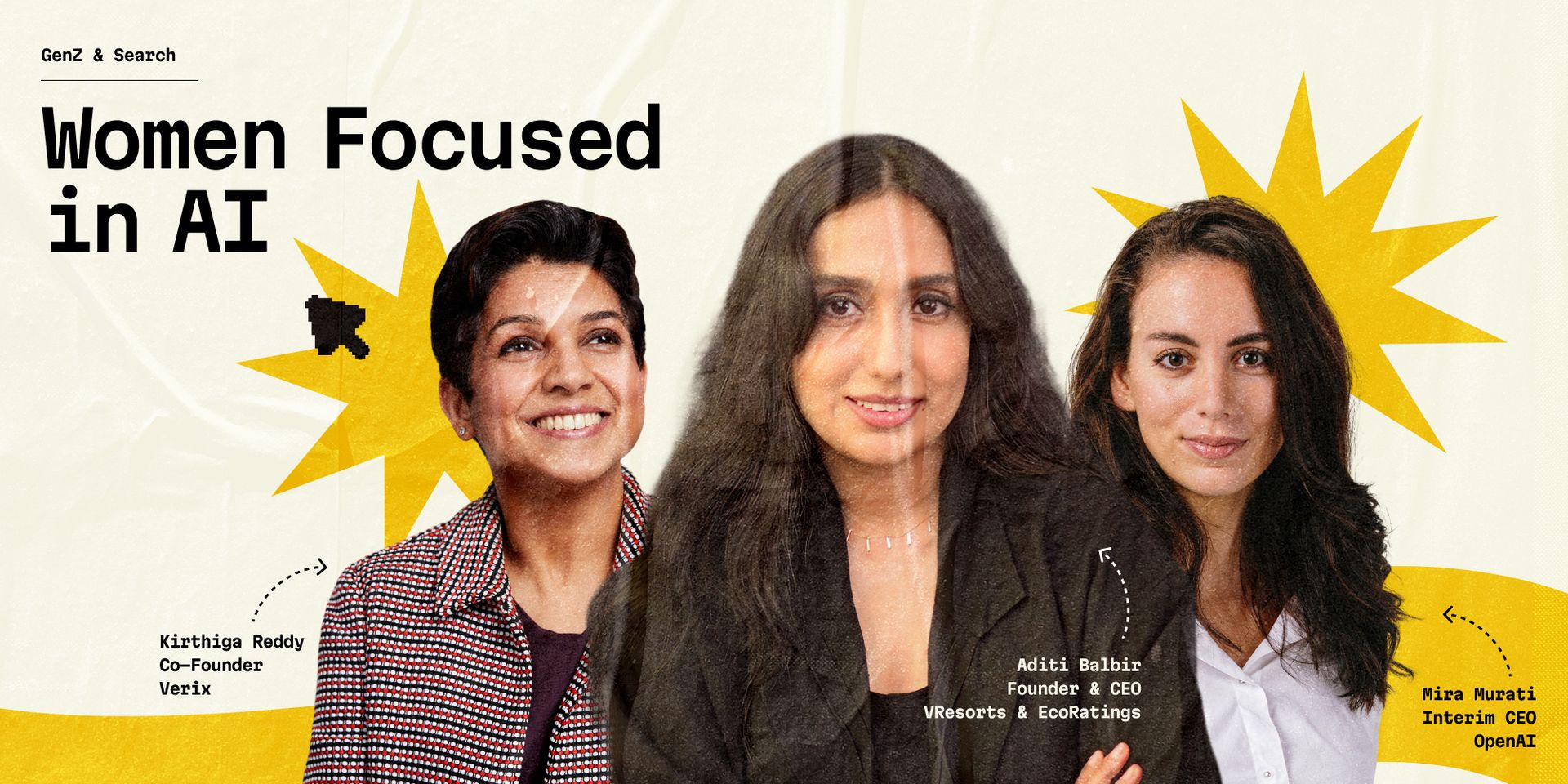
At its core, TechThrive is more than just a content platform- it’s a launchpad for women ready to shape the future of technology and AI. In a space often dominated by the same voices, TechThrive exists to amplify those who’ve been underestimated, overlooked, or simply waiting for the right community to back them. These women are a stark example of how it’s POSSIBLE for every girl dreaming to build something big at the back of their head.
The most influential figure Mira Murati, earlier called the “AI brain” of OpenAI, made history with Thinking Machines Lab, and received a record-breaking $2 billion seed round funding, largest in the history of venture capital. Yet, the coverage for this was minimal and the applause was hesitant. It's a sobering reminder that even when women break records, the world often struggles to fully acknowledge their impact. But it’s also a spark. Because if Mira can move the needle this far, she’s not just opening doors- she’s blowing the hinges off. For every woman building in tech, her success is proof: we’re not waiting for permission anymore.
If you're curious about how women are shaping the future of tech and climate, Aditi Balbir is a name worth knowing. Aditi saw a bigger problem: companies making vague eco-claims with zero accountability. So she built EcoRatings to bring receipts. It uses GenAI + blockchain to rate how “green” a product actually is- from carbon emissions to supply chain impact. Not just a solution to greenwashing, but a great accelerator towards climate action.
Who else is recognising the gender gap in the AI race? Kirthiga Reddy, former Meta head and now Co-founder of Verix, launched AI Kiran, a national movement to empower Indian women in AI. Backed by the Office of the Principal Scientific Adviser to the Government of India and supported by INK Women, the initiative offers mentorship, scholarships, and blockchain-based credentials to help women build credibility in the AI workforce.
Why do we constantly focus on bridging the gap in this space?
The International Labour Organization (ILO) recently warned women are three times more likely than men to lose jobs because of AI automation adding urgency to inclusive policies in AI development. It’s alarming, and for those who care we need to step up and speak about this gap.
YOUNG-GEN CONSUMER PLAYBOOK
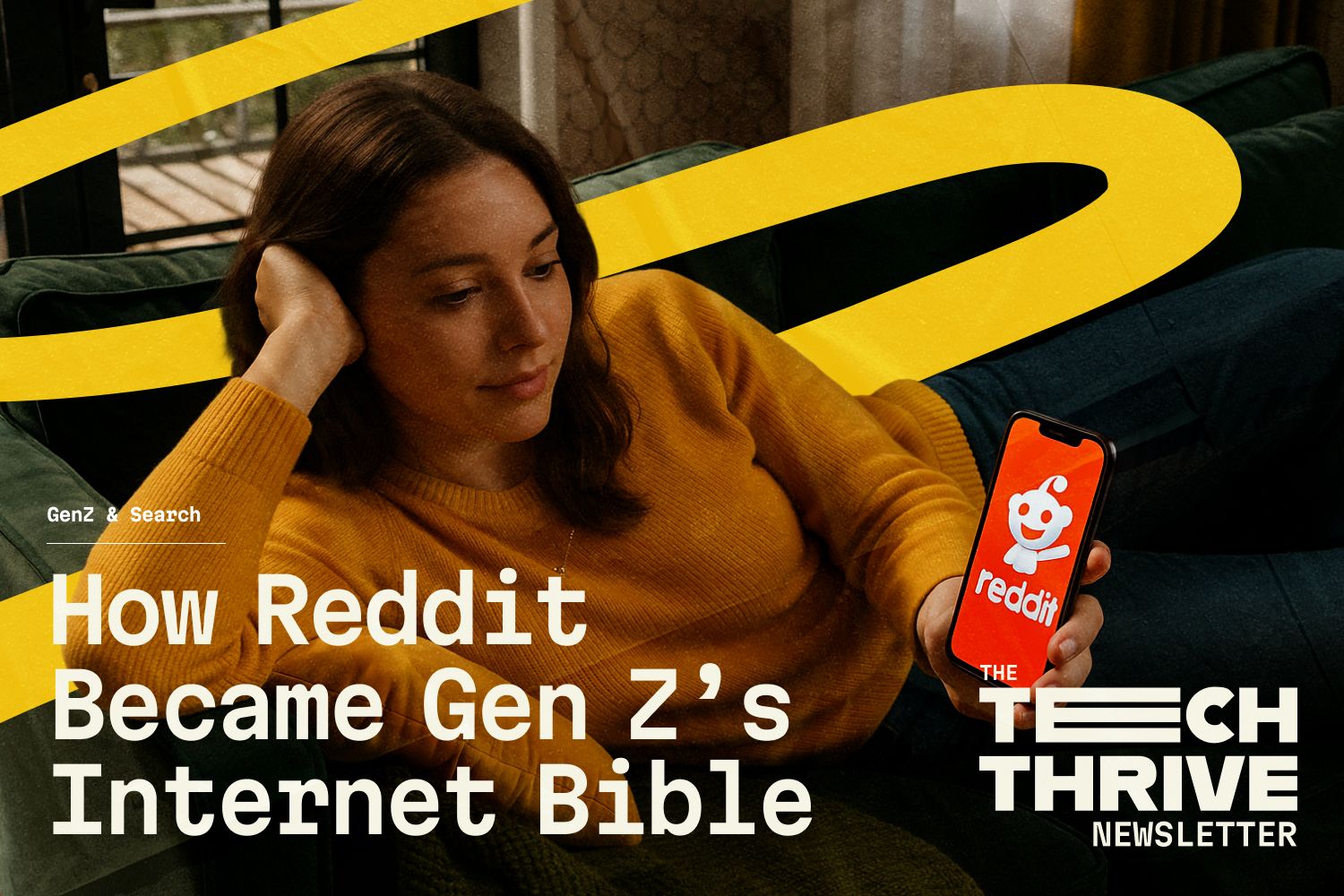
Let’s be honest- Gen-Z isn’t Googling like their parents did. Why scroll past five pages of SEO-stuffed clickbait when Reddit gives you real opinions, faster? Whether it’s “best laptop for college” or “how to fix a toxic situationship,” Reddit has quietly become the go-to search engine for a generation that values human opinions over hyperlinks. These search habits are also changing because clearly this generation has a much lower attention span. If they see similar lived experiences, “I tried because you don't have to” energy, they are bought.
Kidults are an economic engine no one saw coming- but the brands who got it, are definitely cashing on it. Somewhere along the way, capitalism clocked that adulthood is mostly emails, taxes, and a quiet existential scream. So naturally, the fix was to monetize childhood joy like it’s a wellness product. Whether it's adult coloring books branded as "mindfulness tools" or six different pastel Tamagotchis (another example of growing dependency on digital connections) the formula is simple: nostalgia sells. And in 2025, algorithmic empathy and collectible dopamine are just good business.
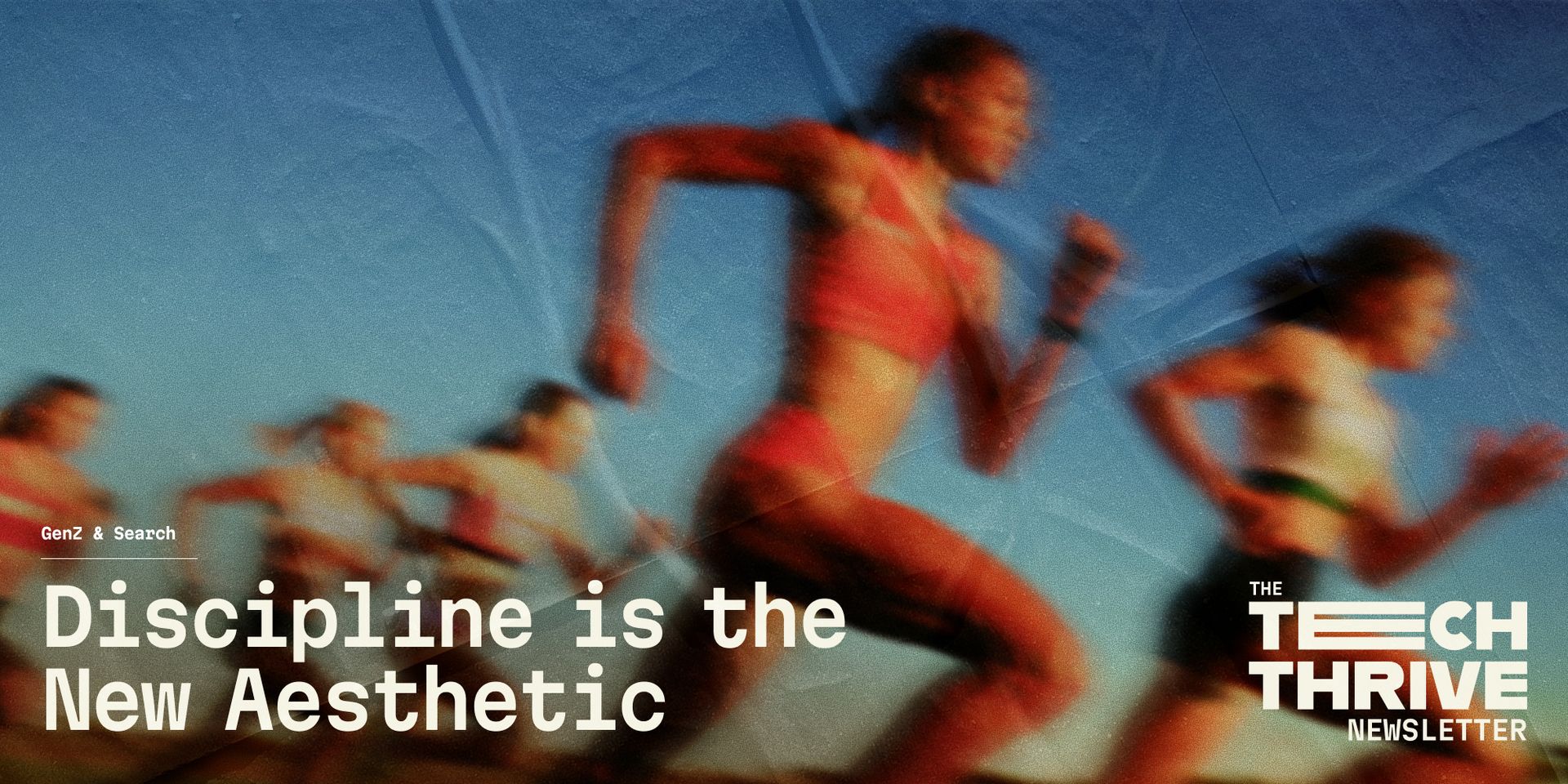
Heard enough about how Gen-Z is the lazy gen? Guess what, Stats report 69% of global Gen-Zers said they would assign higher value to a figure who works hard and has multiple streams of income, and 38% said they’ve started caring more about discipline in the past year. While we only associate them with meaningless advocacy and irrelevant trends, this generation is focused more on curating identities that are as productive as they are aesthetic. Whether it’s morning routine vlogs or notion templates that go viral, 'being disciplined' has become a lifestyle flex and a good direction towards self-care movements.
That’s a wrap from our end for this week’s newsletter, Got feedback or just want to connect, I’d love to hear - LinkedIn
For any Partnerships with TechThrive, Connect here.



